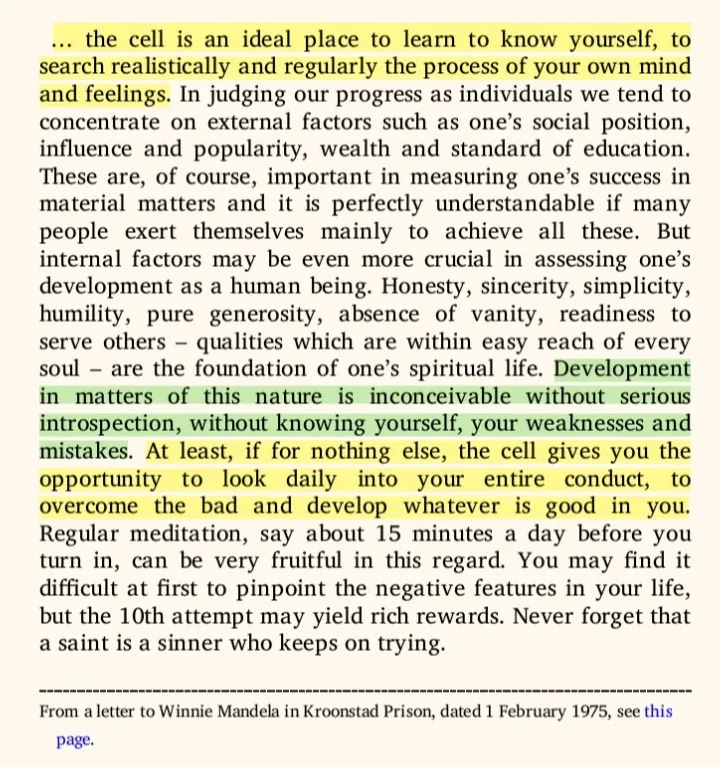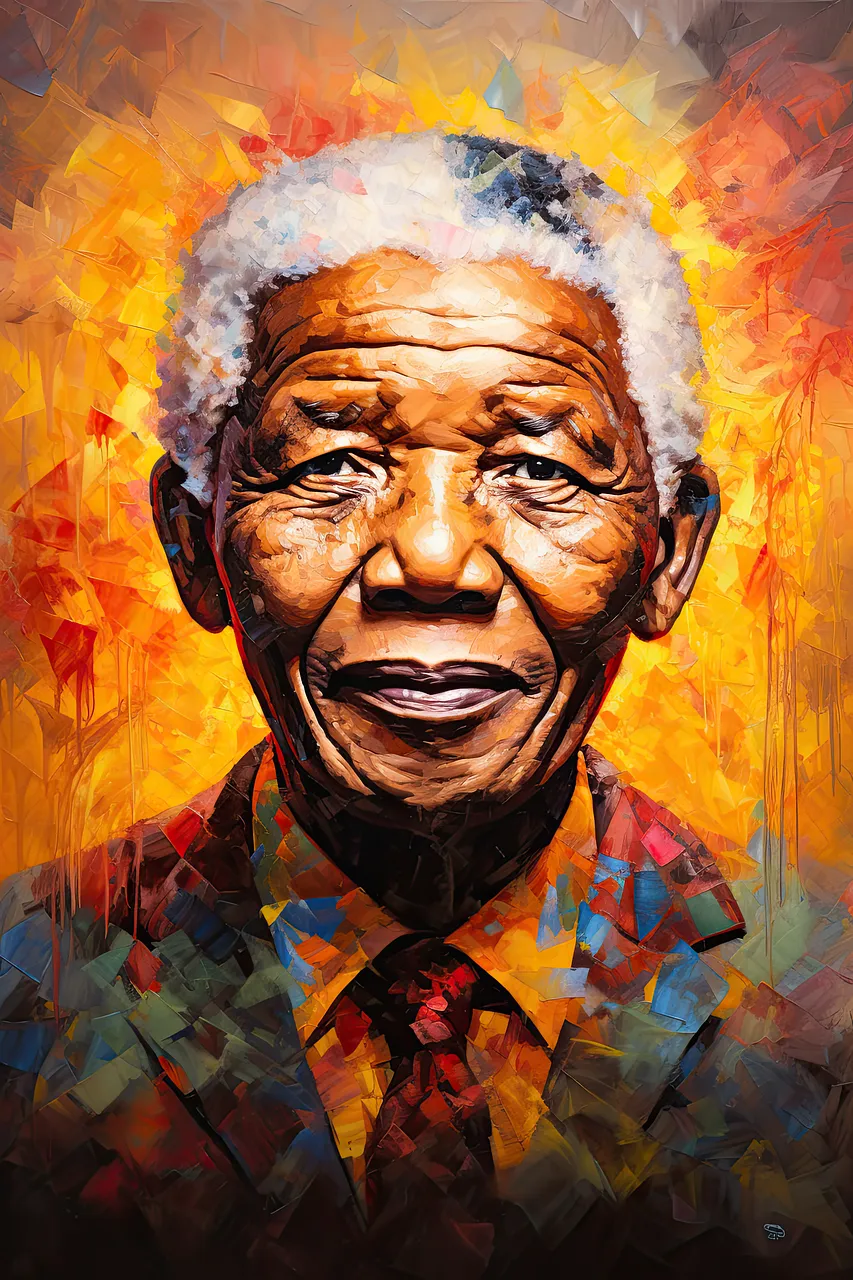
While reading "Conversations with Myself" by Nelson Mandela, I stumbled upon a passage that struck a powerful chord in me. It didn’t just echo in my mind—it settled there, opening up a quiet space for reflection.
Mandela spent 27 years in prison. That’s almost three decades in confinement—cut off from family, friends, and the world he once knew. Yet, he didn’t just survive those years; he was transformed within them.
In time, his prison cell became more than four walls—it became a place of deep introspection, renewal, and unshakable vision. The very place meant to break him ended up building him. From that "cell" emerged ideas so powerful, they helped reshape South Africa.
And that made me think: don’t we all, at some point, find ourselves in a cell of our own?
It may not be physical—no bars, no guards—but it’s a space where life feels tight, where joy feels far, and silence becomes our only companion.
Sometimes it comes after a deep loss. Sometimes it follows disappointment, shame, heartbreak, or a quiet sense of emptiness we can't fully explain. We look around and realize we are emotionally, psychologically—or even spiritually—enclosed.
That, right there, is our "cell."
It might feel dark and isolating. But maybe, just maybe, it holds a deeper purpose. Maybe it’s not there to punish, but to pause us. To invite us inward. To wrought transformation.

Mandela wrote in the piece above:
"Development in matters of this nature is inconceivable without serious introspection, without knowing yourself, your weaknesses and mistakes. At least, if for nothing else, the cell gives you the opportunity to look daily into your entire conduct, to overcome the bad and develop whatever is good in you."
That line moved me.
Because it means our "cell" can be a sacred place. A forge for self-awareness. A cocoon for inner transformation. It’s where we confront ourselves—not just the polished versions we do show the world, but the raw, unfiltered self that quietly pleads for healing and growth.
We don’t get to choose when life brings us to this space-This "Cell" But we do get to choose what we do with it. We can resent it. Or we can respect it.
The cell doesn’t have to be our end. For Mandela, it became the beginning of something far greater. And perhaps, if we embrace it rightly, so can ours.
P:S-Thanks🙏for the reading. Very soon I'll begin a series on this book. Its a journey. Please stick with me through to the end.